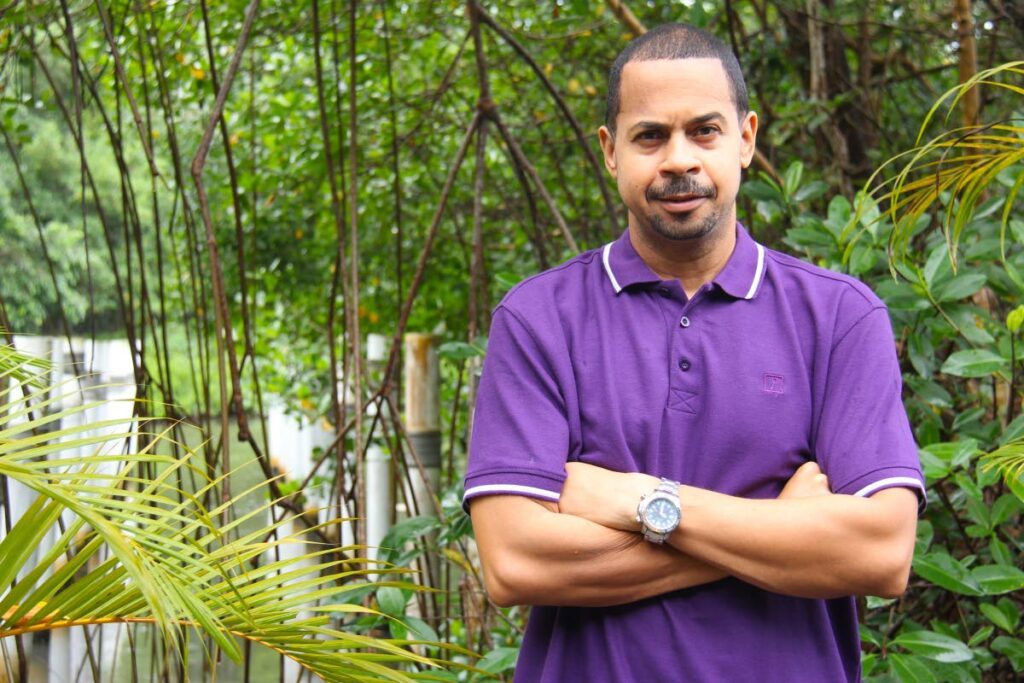Legend of Trini hospitality

NEARLY everything about this young German’s odyssey sounds crazy, but if he’s crazy then we all are. We’re walking around this country like we aren’t all meat for the gaping maw.
Twenty-year-old Tylo Kruse is walking from Toco to Icacos dressed like Indiana Jones (without the most important accoutrements – the whip and the gun). He’s also doing this challenging trek wearing combat boots, which probably has the GLB (global league of podiatrists) curling their toes in horror.
At the core of Kruse's one-man campaign, though, is spotlighting the incandescent spirit of generosity and humanity of the Trini people. So much of what defines us is obscured by a pall of negativity and, I daresay, pervasive evil, which is neither imagined nor invented.
Shortly after his brush with the bandit welcoming committee, Kruse found himself swept up in a maelstrom of…effusive care and attention. Everywhere along his route he’s showered with warmth and affability.
In response, haters implied online that this conviviality is contrived – no ordinary Trini doing the same thing would benefit from this intense public attention and effusive support. Opinion, though small in number, inferred that Kruse is leveraging his white privilege; the reception with which he’s been garlanded is theatrics for any global eyes watching.
The kindness Kruse has experienced on his journey so far is quite real. I know this because I’ve seen it myself countless times.
Visiting nearly every community in this country exposed me to a unique quality of Trininess. In my experience, Trinidadians least able to afford to lavish visitors with kindness are the folks most predisposed to do so. This is particularly true in rural regions. It’s in some of our more conspicuously humble country villages and homes that I was given the warmest welcome.
As a young reporter, I was dispatched to Moruga for a story. My cameraman and I visited with an old woman draped in an ornhi (a lace shawl) in a wooden house on spindly stilts. The turquoise paint was faded to almost nonexistent in parts. In a spot where the wood had rotted away, there was a large sheet of plywood stamped with the ghosted-out letters CKD (completely knocked-down parts). We’d caught her just as she finished cooking lunch.
Although we were strangers she served us a full meal of curried chicken, rice and dhal. Funny thing is, she never called the station; the wizened old woman was just our first stop making enquiries in the area. The three of us talked as the steam and aroma of this delicious food rose and mixed into our conversation; lace curtains at the window danced on a light forest wind. After having thanked her, she quietly said, “I know all-you come from fah…”
Several years later, when I was producing the television series The Road Less Travelled, I profiled the community of Debe – a former sugar town. I was chaperoned by Seukeran Tambie, a diehard advocate for displaced sugar workers and an unofficial historian. He took me to an old-school roti shop where our three-person crew were treated like honoured guests. We were plied with curried duck and roti; to this day it remains one of the best I’ve ever had. The owner of the shop fussed about us, making sure we were sorted.
Some readers might say the only reason I got the welcome I did is because of my relative "celebrity" and the TV camera.
In fact, this was the Trinidad I knew long before I became a household name (like Clorox or cockset). My father grew up on the east coast in Manzanilla. I spent a good chunk of my youth steeped in country life. Whenever we visited the countryside we’d be loaded up with more fruits than we knew what to do with.
This image of hospitality is hard to square with everything else Trinidad has become – crushed beneath the politics of self-interest, schisms of race and class and, of course, the rapacity of crime. That’s the frustrating duality of our being; the overwhelmingly good and pure in eternal struggle with the forces of perdition. There’s nothing feigned in the Trini spirit of generosity, though; it’s practically a reflex of character.
Citizens who know this truth feel the pain of our decline more acutely than those who’ve been spared such wisdom. Trinidad can be better than its worst impulses. Everyone should be able to walk the length and breadth of this place to learn its true soul.


Comments
"Legend of Trini hospitality"